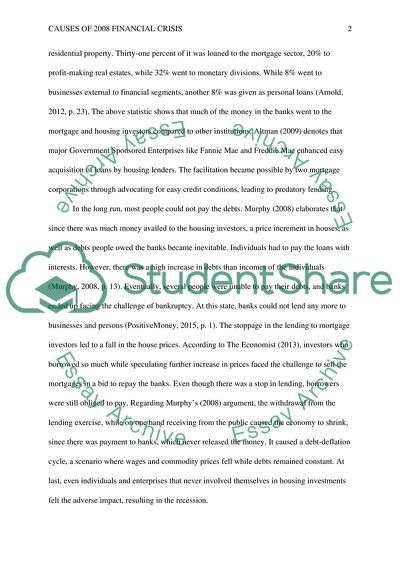Cite this document
(“Causes of 2008 Financial Crisis Essay Example | Topics and Well Written Essays - 1000 words”, n.d.)
Retrieved from https://studentshare.org/finance-accounting/1702304-causes-of-2008-financial-crisis
Retrieved from https://studentshare.org/finance-accounting/1702304-causes-of-2008-financial-crisis
(Causes of 2008 Financial Crisis Essay Example | Topics and Well Written Essays - 1000 Words)
https://studentshare.org/finance-accounting/1702304-causes-of-2008-financial-crisis.
https://studentshare.org/finance-accounting/1702304-causes-of-2008-financial-crisis.
“Causes of 2008 Financial Crisis Essay Example | Topics and Well Written Essays - 1000 Words”, n.d. https://studentshare.org/finance-accounting/1702304-causes-of-2008-financial-crisis.


